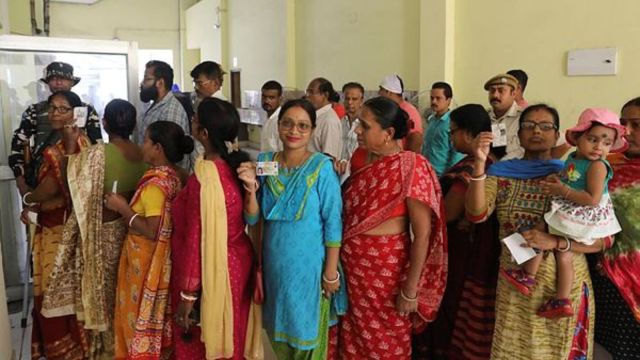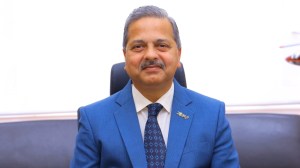Mumbai voters’ troubles: Names missing from rolls, votes already cast, accessibility
Several citizens faced significant issues, including others voting in their name, names missing from the voters’ list and poor condition of roads leading to polling stations.
 Of the city's 1.02 crore voters, data furnished by the administration showed that 1,68,422 voters fall in the 18-19 years age bracket. (Express file photo by Partha Paul)
Of the city's 1.02 crore voters, data furnished by the administration showed that 1,68,422 voters fall in the 18-19 years age bracket. (Express file photo by Partha Paul)Polling in and around Mumbai largely proceeded smoothly as the state vote on Wednesday even as several citizens faced significant issues, including others voting in their name, names missing from the voters’ list and poor condition of roads leading to polling stations.
‘Someone else voted’
Sanjay Surve, 61, who travelled from Ghatkopar to Mulund to vote on Wednesday afternoon, was shocked to find that his name had already been marked as having voted. “I couldn’t believe it when I found out that someone had already voted in my name. How could the polling officers let this happen,” he questioned.
At first, the officials stopped him from voting, but after reaching out to a nearby party worker, the issue was raised, and he was eventually allowed to vote using a ballot paper. However, Surve remained unsure whether his vote would actually be counted by the polling officials.
Confusion in Dahisar
In Dahisar, several voters faced similar confusion. Geeta Virendra Gupta, who arrived at the polling station at 11 am, was told that her vote had already been cast. “My name and address are still the same, and I’ve voted in my constituency multiple times before, including in the previous Lok Sabha elections. This has happened before too — whenever I come after 10 am, someone else has already cast my vote and leaves,” Gupta said. She mentioned that during the previous assembly elections, a similar issue arose when she arrived after 11 am.
Gupta was told to wait until 2 pm, but she ultimately left without voting.
Sanjana Vishwakarma, another Dahisar resident, also found her name was missing from the list. She was allowed to vote using a ballot paper after showing that her finger was not inked. “I was told someone had already voted on my behalf. I showed them my fingers with no ink mark, and they then allowed me to vote with a ballot paper,” she said.
Names missing
For others, the problem was finding their names on the electoral rolls. Lavu Murlidhar Rane, a 44-year-old physically challenged voter from Mulund East, was frustrated after discovering his name was absent from the list, despite having voted in the 2019 elections. Rane, who uses a stick for mobility, arrived at the polling station early with his election card, only to find that his name was not on the list.
“I checked the list at the centre and even used the app outside to verify, but it still didn’t show up,” Rane said. “I spent over 30 minutes searching and walking around, but I couldn’t find any solution. It’s frustrating, especially since I’ve voted here before.”
Documentation trouble
In the Shivaji Nagar-Mankhurd constituency, activist Shaikh Faiyaz Alam raised concerns over discrepancies in voters’ names on documents. “Many people in our area had their first name, ‘Mohamed’, spelled differently across various documents. The polling officials pointed this out, and as a result, several residents had to go home to retrieve matching documents before they were allowed to vote,” he explained.
Accessibility issues
Some voters also expressed dissatisfaction with the location and condition of the polling stations. Abbas Jafferali, a Mumbra resident whose voting centre was at Bosco School in the Kausa area of Mumbra, complained about the poor condition of the road leading to the school. “There was sewer water flowing across the narrow road we had to cross to reach the school. The poor road conditions and the large number of motorbikes made it particularly difficult for senior citizens to get to the polling booth,” said the 75-year-old Jafferali. However, he noted that once inside the school, things were managed well.
Phone restrictions
In some polling stations, the restriction on mobile phones created inconvenience. Mukesh Joshi (28), a voter in Malad, said, “I had come to vote alone, but I discovered they weren’t allowing phones inside. I had to go home, leave my phone, and come back again to cast my vote.”
Shivam Joshi (30) echoed the concerns. “Even though the police officers were saying phones are not allowed, they were unwilling to safely keep them while the voters went inside. Bringing phones to vote has been a regular practice, and if authorities weren’t allowing them, they should have made alternate arrangements to ensure voter convenience.”







